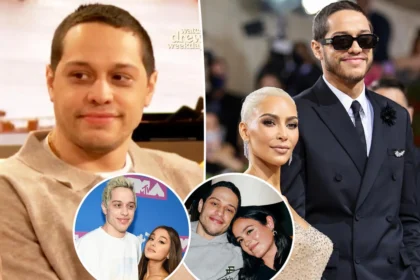In the expansive realm of TikTok, where a plethora of content ranging from fashion showcases to glimpses into daily lives and participation in viral dance trends can be found, a surprising avenue for learning has emerged. Amidst the entertainment and diversions, TikTok has evolved into an unexpected platform for sharing educational insights that often elude conventional learning resources.
Scholars and educators are seizing the potential of TikTok to convey historical narratives that might not find their place in traditional educational materials. Remarkably, their efforts are resonating with an ever-growing audience, shaping a new dimension of knowledge dissemination.
A 2022 survey conducted by online learning platform Study.com unveiled an intriguing trend: one in four TikTok users in the United States are utilizing the platform for educational purposes, with history emerging as one of the most in-demand subjects.
Among these educators stands Kahlil Greene, also known as the Gen Z Historian on TikTok. Back in 2021, while wrapping up his senior year at Yale University, Greene initiated videos addressing the “significant whitewashing that occurs” during Martin Luther King Jr. Day. He illuminated quotes from the civil rights leader that reflected his unfiltered perspectives on issues of race and class.
The positive response further spurred Greene’s commitment. He embarked on a series christened “hidden history,” unveiling lesser-known episodes from the annals of the nation’s past. This series unearthed the nativist roots of the Pledge of Allegiance and revealed the unsettling history of “human zoos” that exhibited people of color for the amusement of predominantly white audiences.
“I’ve consistently seen my work as bridging the gaps within the US education system,” Greene shared in an interview with CNN. The approach to teaching history in US public schools can significantly diverge from state to state. While pivotal events such as slavery, the Civil War, and the civil rights movement typically receive coverage, the lens through which these topics are explored can often be colored by partisan politics and localized demographics.
Adding to the challenges, the ongoing backlash against “critical race theory” from conservative quarters has cast shadows on history education. The University of California, Los Angeles School of Law’s tracker underscores this impact, revealing the introduction of roughly 700 measures between September 2020 and July 2023 at various governmental levels aimed at curtailing the teaching of themes related to race and racism.
However, despite these challenges, educators stand firm in their belief in the significance of sharing such knowledge. Highlighting the value of this information for students, Ernest Crim III, a former high school history teacher who now creates educational content on TikTok, emphasizes its significance. Crim’s videos shed light on frequently neglected figures in Black history and offer a historical background for current events. This content has resonated strongly, propelling Crim to a recognized position both within and beyond the digital domain.
TikTok’s educational reach extends beyond history to encompass matters of identity and heritage. Aslan Pahari, a content creator based in Sydney, harnesses TikTok to share insights into ancient history, mythology, and more, often spotlighting themes tied to South Asian and Central Asian cultures. Pahari’s engagement with these subjects emerged from a desire to understand his own ethnic background and origins.
However, within TikTok’s sprawling landscape, educational content coexists with offerings from creators without scholarly credentials, underscoring the necessity for users to exercise discernment in evaluating information. While TikTok serves as an initial stepping stone for learning, scholars emphasize the importance of broader engagement, urging users to ask questions and move beyond passive consumption.




